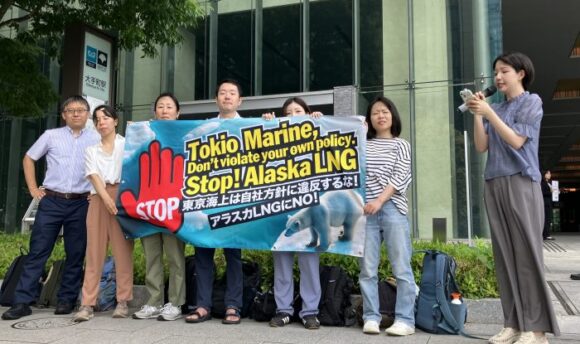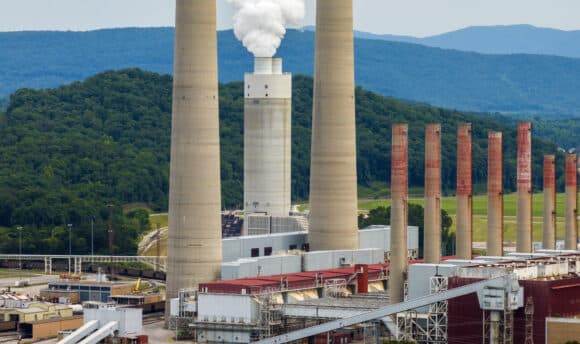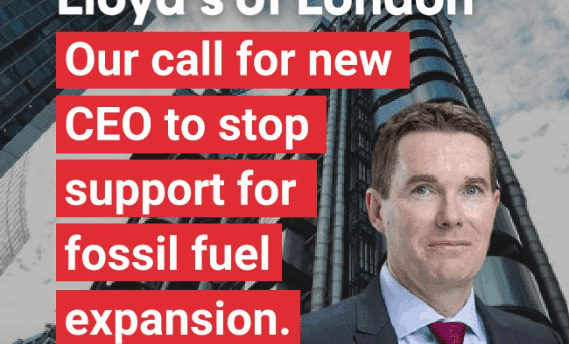Cut emissions today to insure tomorrow, warns report as 2024 marks the first year to cross red line of 1.5°C global heating
Insure Our Future’s eighth annual scorecard report Within Our Power reveals that climate change accounts for an estimated $600 billion, or over a third, of global insured weather losses over the last two decades — an immense climate price tag that insurers have long been passing on to policyholders. Climate-attributed losses rose from 31% to 38% of total insured weather losses over the last decade on average, outpacing them 6.5% to 4.9% in terms of annual growth.
“Insurers are fundamentally misunderstanding climate risk by failing to recognize how greenhouse gas emissions have driven up losses throughout this century. Unless we cut emissions sharply this decade, climate damages will grow exponentially and could overwhelm both insurers and economies.”
The continued fossil fuel expansion pushing those emissions reductions out of reach relies on essential insurance coverage, which is not guaranteed as insurers’ rapid withdrawals from communities show. Moreover, fossil fuel underwriting is economically dubious. The report’s analysis of 28 top global property and casualty insurers found that their estimated share of climate-attributed losses ($10.6 billion) rivaled the $11.3 billion in direct premiums they underwrote for commercial fossil fuel clients in 2023.
For more than half the companies, including Allianz, AXA, and Zurich these losses exceeded the coal, oil, and gas premiums. On average fossil fuel premiums make up under 2% of total premiums, raising serious questions about why insurers are not using their outsized influence on the fossil fuel sector to protect the other 98% of their business against spiraling climate risks.
The industry’s current approach of underwriting fossil fuel expansion that exacerbates climate risks and withdrawing coverage and/or charging more for these risks is both economically irresponsible and unjust. With 2024 the first calendar year to breach the danger threshold of 1.5°C temperature rise, rapid cuts in greenhouse gas emissions are essential to increase affordable coverage and keep premiums manageable — especially for historically disadvantaged communities.
The U.S. Gulf Coast, reeling from back-to-back hurricanes fueled by record ocean heat, exemplifies both the need for urgent resilience as well as its painful limits.
“Over the last few years, I have traveled around the world to meet with many oil and gas financiers and insurers because they won't visit my community of Sulphur, Louisiana. We are living here despite the pollution from the oil and gas projects they're insuring and the storms caused by the warming planet. We are forced to try to mitigate these risks by hardening our homes because they tell us to, but that cannot keep us safe if they aren't willing to mitigate the biggest risk of all, which is their support for fossil fuels.”
Italian insurer Generali set a new bar this October by adopting the first fossil fuel restriction policy that covers the entire oil and gas value chain and includes in its scope new methane LNG projects that threaten climate targets. However, Insure Our Future’s analysis found that the industry as a whole has stalled on effective climate action even as it abandons communities worldwide to face mounting risks without protection and pay eye-watering costs they had little role in creating. The total commercial fossil fuel insurance market grew marginally in the last two years. Total renewable energy insurance premiums are still under 30% the size of the fossil fuel insurance market ($6.5 billion compared to $22 billion) — a potential insurance bottleneck for up to $10 trillion of climate transition investments by 2030.
“The evidence is undeniable — climate change represents an existential risk for the insurance industry,” write former California insurance commissioner Dave Jones and senior actuary Dr Louise Pryor in a joint foreword for the report. “The insurance industry has historically helped make societies more resilient. Now it must embrace its power and accelerate the transition to clean energy, stop underwriting new fossil fuel projects, and rapidly align with credible 1.5°C transition pathways.”
With voluntary corporate actions falling far short as irreversible tipping points loom, lawmakers and regulators must act decisively. Insure Our Future’s key recommendations include:
- Require insurers to develop, implement and disclose 1.5°C-aligned transition plans
- Mandate robust scenario analysis to account for the full complexity of climate-related events, including tipping points
- Oversee insurers’ management of climate risks, including how fossil fuel underwriting and investment exacerbate those risks, to ensure their stability and ability to provide coverage
- Implement policies that support just allocation of climate risks and costs to protect communities



